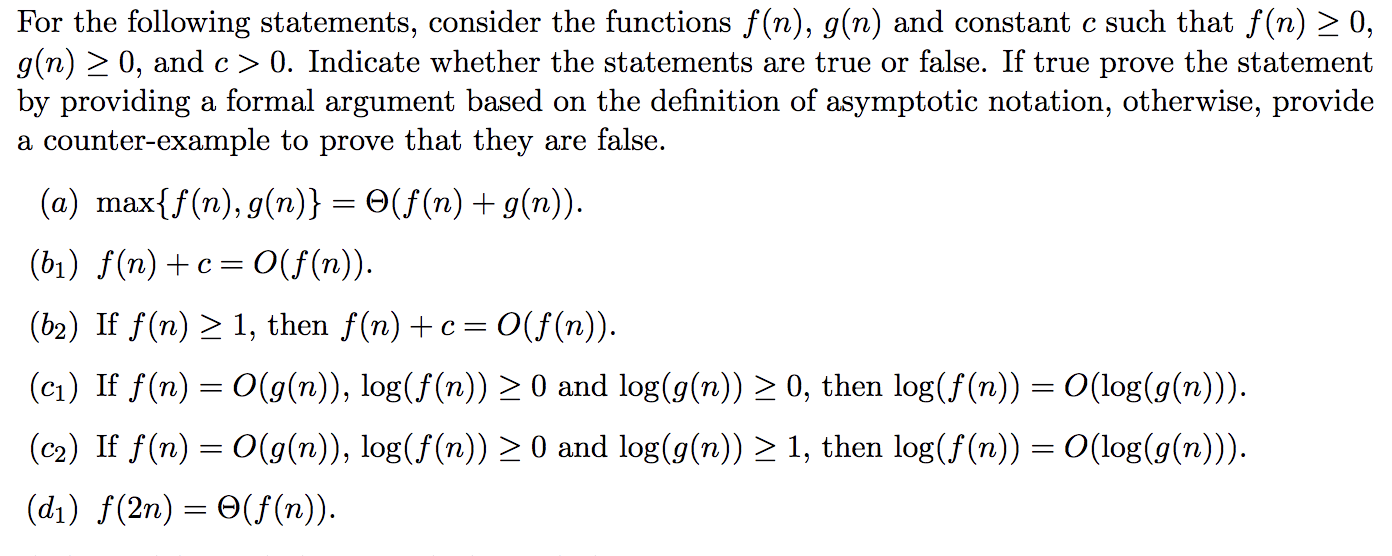Answered step by step
Verified Expert Solution
Question
1 Approved Answer
The proofs for parts c1-d1 are really throwing me off. For the following statements, consider the functions f(n), g(n) and constant c such that f(n)
 The proofs for parts c1-d1 are really throwing me off.
The proofs for parts c1-d1 are really throwing me off.
Step by Step Solution
There are 3 Steps involved in it
Step: 1

Get Instant Access to Expert-Tailored Solutions
See step-by-step solutions with expert insights and AI powered tools for academic success
Step: 2

Step: 3

Ace Your Homework with AI
Get the answers you need in no time with our AI-driven, step-by-step assistance
Get Started


